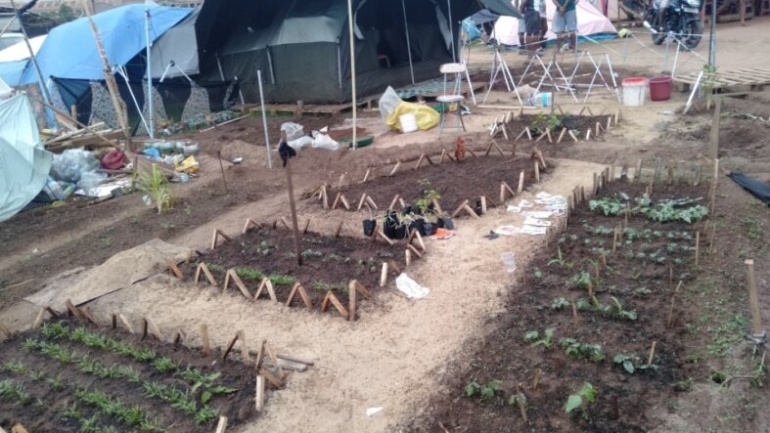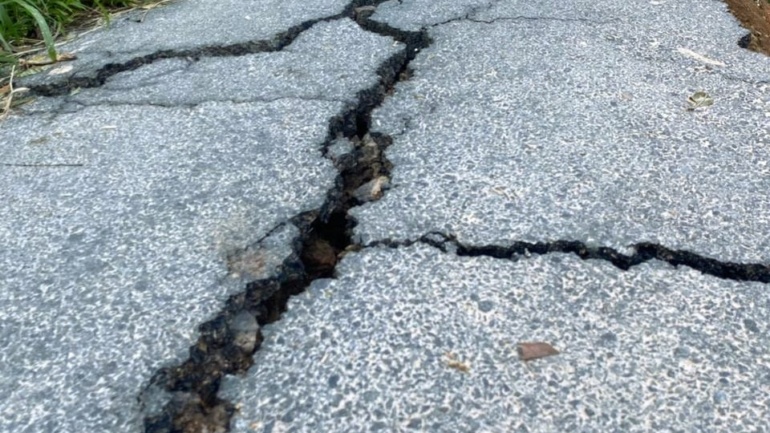Last week, on 31 January, the Centre for Progressive Politics & Policy held its inaugural webinar on Sri Lanka’s response to South Africa’s case against Israel. Moderated by Saroj Pathirana, it featured two women’s rights activists, Shreen Saroor and Piyumi Wattuhewa, alongside Kalana Senaratne, Hejaaz Hizbullah and Dayan Jayatilleka. The latter’s inclusion was particularly refreshing; he should be one of the main voices in discussions like this, even if for some reason he never seems to get featured in them.
The participants brought out some interesting perspectives on the ruling. While Senaratne reflected on how the Global South has taken over the moral high ground on human rights issues, Hizbullah, a victim of anti-terror legislation in Sri Lanka, dwelt on how the war in Gaza has revealed the West’s racist attitudes towards Muslims and the Israeli model’s acceptance by Sinhala nationalists in Sri Lanka and abroad. Saroor dwelt on the parallels between the Gaza conflict and the separatist conflict in Sri Lanka, while Wattuhewa brought out a feminist youth angle, emphasising the need for broad solidarity on Gaza.
Jayatilleka began his intervention by recalling Palestine’s bid for membership at the UNESCO, where he served as Sri Lanka’s Permanent Delegate, in Paris, from 2011 to 2013. The vote came up for discussion at the 193rd UN General Conference. As expected, Western countries led by the US tried to stall it. While Hillary Clinton – who recently took to Twitter to lament Margot Robbie’s exclusion from the Oscars, but has yet to tweet about or share images of what Palestinian women are going through in Gaza – asked the UNESCO to rethink its decision, a Republican Senator threatened to cut US funding to that agency.
In hindsight, the latter threat seems to have been prescient, with a Democratic government now cutting funding to the UN agency for refugees on largely unsubstantiated allegations of UN staff collaborating with Hamas. Back then, however, sanity prevailed, and in a broad show of Global Southern unity, Palestine’s bid succeeded, with a majority (107-14), which surprised if not shocked the West. Coming 12 years before the current war, it was an early example of the possibilities of Global Southernism, of the sort that, as Senaratne implied in his presentation, appears to be emanating from Africa.
Africa’s recent interventions on these fronts have not been examined properly, especially by Western analysts who dismiss it as a passive participant in global politics. South Africa’s case and Gambia’s interventions in the conflict are, in that sense, not just commendable; they are also indicative of a broader shift in the Global South. In Asia, countries like India have been ambivalent, at best, with their stance on Israel, and the Sri Lankan Government seems to be of two minds when it comes to Gaza. Africa, by contrast, has been much more steadfast and consistent in their support of the Palestinians.
When considering Sri Lanka’s response to the South Africa ruling, a distinction must be drawn between the people and the Government. The latter, for all intents and purposes, is trying an intriguing balancing act, supporting the Global South’s push for a humanitarian ceasefire while sending our youth to work in Israel. While it remains to be seen how the regime will achieve this balance, Sri Lankans, particularly the youth, are calling for a more ethical stance. Moreover, as one participant noted, the Palestinian Ambassador called on and commended the likes of Mahinda Rajapaksa, but had nothing to say to, or about, the President, though the latter is amplifying calls for a ceasefire abroad.
Sri Lankan youth
Sri Lankan youth are overwhelmingly siding with Palestine because they identify Palestine and the African countries that have called for an end to Israeli atrocities in Gaza, as the marginalised. Yet, much of the Global North has framed Israel as the smaller, defenceless power that is being encircled by stronger States and needs protection from the West. Though Joe Biden has imposed sanctions on Israeli settlers, and David Cameron speaks about a Palestinian State, risking a backlash from party colleagues, the US and UK have done very little to prevent the bloodbath unfolding in the region.
In that context, Hizbullah’s point about Islamophobia and its bearing on Israel and Sri Lanka is quite pertinent. He noted, correctly, that many Sinhala nationalists have sided with Israel, seeing Hamas as an extension of the kind of Islamic fundamentalism they associate with almost all Muslims in Sri Lanka. In other words, they have accepted Israel’s response. The parallels Saroor brought up between the Gaza and Sri Lankan conflicts shed light on this further, though, as Hizbullah acknowledged, the figurehead of Sinhala nationalist politics in Sri Lanka, Mahinda Rajapaksa, is seen as a hero in Palestine.
Both Saroor and Hizbullah are brave, courageous critics of all forms of chauvinism; Saroor in particular noted her defiance of the LTTE. In that sense, and adding to what they said, I think we need to note that, inasmuch as Sinhala nationalists sought common ground with Israel’s ‘response’ to Muslim ‘terrorists,’ Tamil nationalists once identified with the Israeli model as well. Though Tamil nationalist outfits set up links with Palestinian resistance leaders like George Habash, the rise of the LTTE put an end to hopes of a rapprochement between these groups. In Sri Lanka, hence, Palestine became something of a lost cause.
This dovetails with another issue. Historically, both Sinhala and Tamil nationalist groups in Sri Lanka identified themselves as victims: of British colonialism in the case of Sinhala nationalists, of Sinhala chauvinism in the case of Tamil nationalists. Yet, they adopted the viewpoint of the groups that brutalised them when they rose to power. Seeing themselves as the oppressed, they turned oppressor the minute they got the chance.
In a way, that parallels the tragedy of the Jewish people as well. Following the Second World War, the Jewish Diaspora had the unprecedented chance of turning into a voice for the voiceless, by championing causes like decolonisation and anti-racism. Yet, its leaders ended up hobnobbing with the most regimes: the Israeli Government, for instance, supported apartheid South Africa, while Jewish migrants and holocaust survivors who settled there – with the exception of progressive liberals like Helen Suzman, a secular Jew who associated with Nelson Mandela – sided with the White regime.
Marginalised communities in the West
For a while, marginalised communities in the West, like African Americans during the Civil Rights Movement in the US, expressed some sympathy for Zionism and identified the Jewish people as kindred spirits. But that was another world. Following the Six-Day War in 1967, Israel’s treatment of Palestinians and its support for the West’s forever wars, including in Vietnam, began draining the country of whatever support it had got from these groups, in particular within the Global South. Thus, while S.W.R.D. Bandaranaike could champion both the Palestinian cause and Israel’s right to exist in the 1950s, by the 1970s and 1980s such attitudes had given way to unconditional support for Palestine.
The Israeli Government has only itself to blame for this, and that applies to all parties and politicians there. Those who argue that it became racist and genocidal after the rise of Likud, the right-wing party that nurtured Benjamin Netanyahu, forget that the Labour Party was in power in the 1950s. However more progressive the Party may have been on domestic and economic issues, it was hardly less complicit in the marginalisation and brutalisation of the Palestinians. Though promoting democracy at home, it stifled dissent abroad, turning any criticism of the country into a cover for antisemitism. In the end, it lost credibility in the very regions which would have been in its interest to ally with.
It is in light of these historical developments that Sri Lanka’s response to the ICJ ruling must be viewed, considered, and debated. For some the ruling does not go far enough – it does not, for instance, call for an immediate ceasefire – while for others it remains a landmark. However, one may view the ruling, in this country there is a clear and broad show of support for Palestine and the people of Gaza. A sizeable number of Sri Lankans, particularly its youth, do not consider Palestine negotiable. In Sri Lanka, simply put, it is not up for debate, but for discussion. And as the CPPP webinar made it clear, many perspectives must be factored in, and incorporated, when discussing it.
Uditha Devapriya
This article was originally published in The Island on 04 February 2024.
Image Copyright (c) 2024 Nazly Ahmed and made available under an Attribution-Noncommercial-Share Alike 2.0 license



